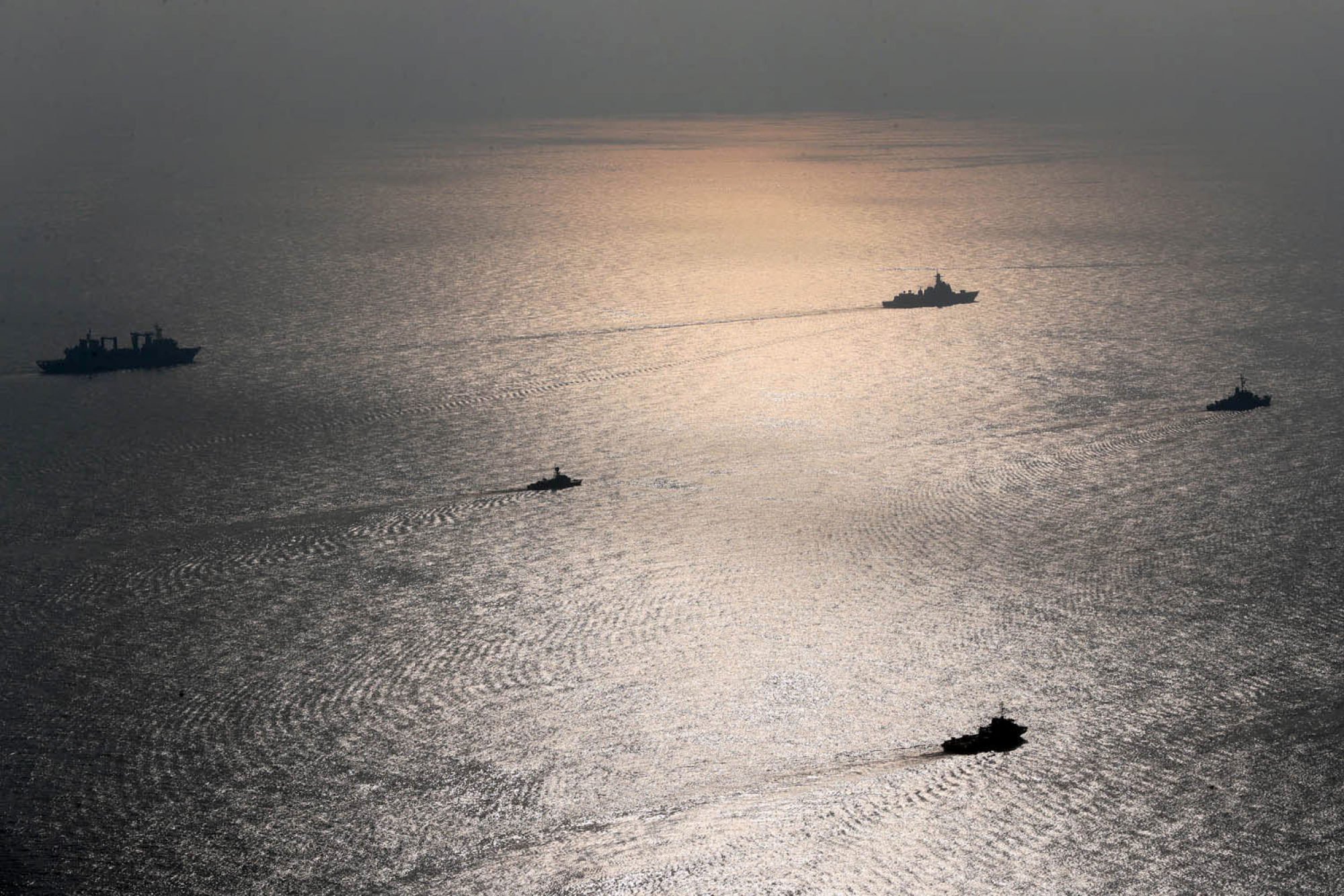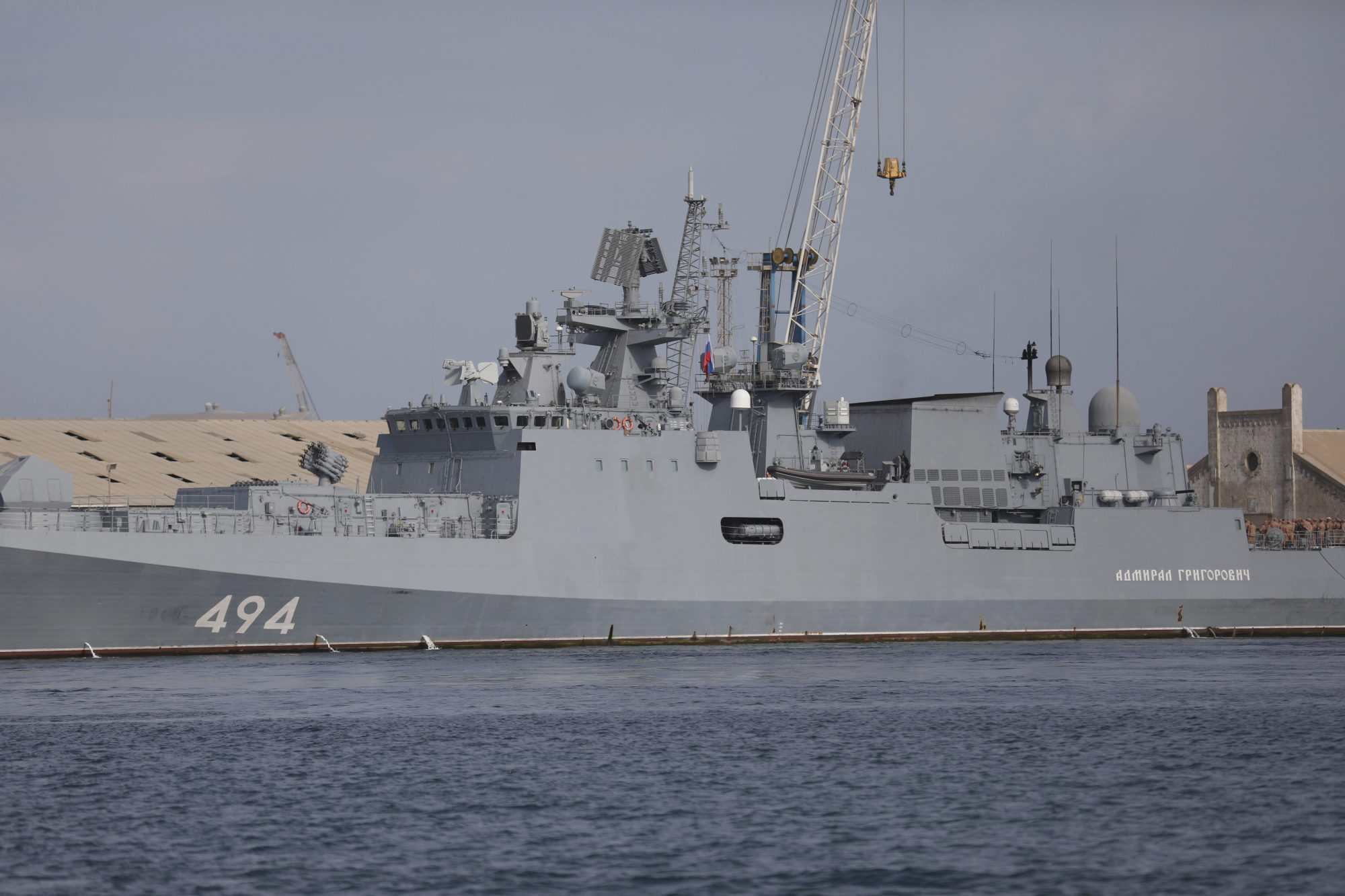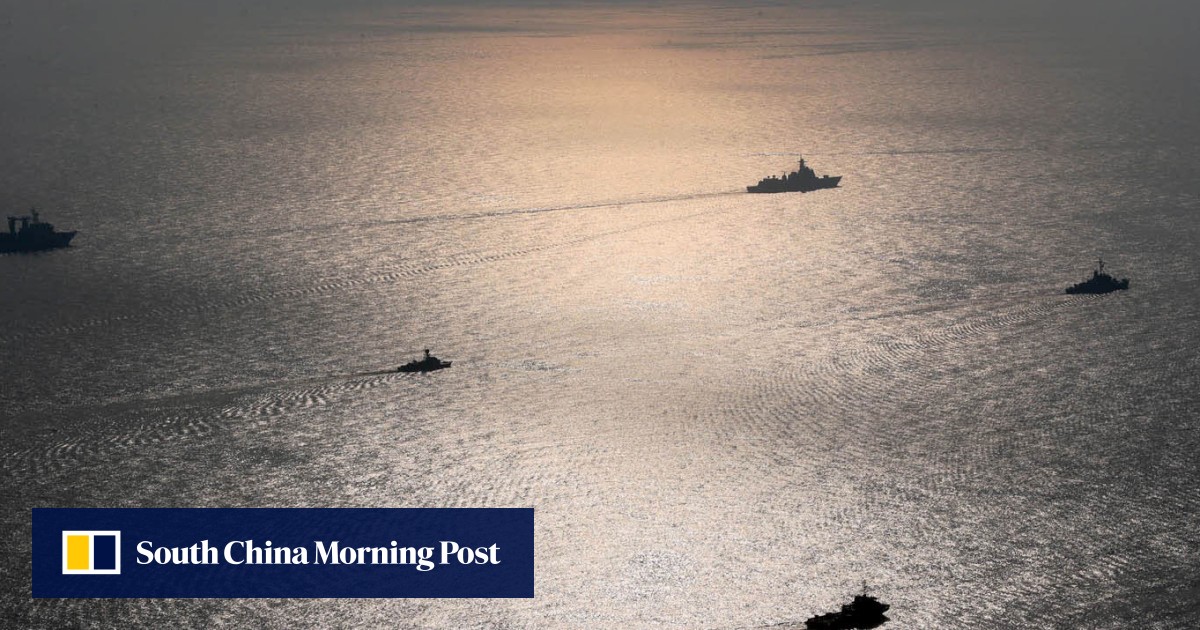Two anti-submarine ships, the Admiral Tributs and Admiral Panteleyev of the Russian Pacific Fleet, took part in the exercise alongside a frigate and a corvette from Myanmar’s navy.
Days after the exercise, the same Russian warships docked at Bangladesh’s Chittagong Port in the Bay of Bengal, marking a “huge milestone for Russia-Bangladesh relations”, according to the Russian embassy in Dhaka.
China wants to deepen ‘everlasting’ good ties with Russia: Xi Jinping
China wants to deepen ‘everlasting’ good ties with Russia: Xi Jinping
Richard Rossow, senior adviser and chair in US-India policy studies at the Centre for Strategic and International Studies in Washington, said such moves indicated that Moscow wanted to maintain the “perception” of being a global power.
“As it engages more deeply with China on regional issues, having a large global force presence will be important so Beijing sees Russia as a peer, rather than a fading power,” Rossow said.
When China looks at Russia, it sees a nation torn between great-power ambitions and weak capabilities
Yet observers say that while China may have maintained cordial relations, there is a growing perception among the Chinese leadership of a Russia that’s weakened.
As Yun Sun, China programme director at the Stimson Centre security think tank, wrote in an article published by foreign-policy analysis platform War on the Rocks last year: “When China looks at Russia, it sees a nation torn between great-power ambitions and weak capabilities.”
“Russia will likely inject a nominal presence now and again just to prove it still has the ability to support distant military operations,” Rossow said.
A potential challenge?
While a “modest, occasional Russian presence” in the Indian Ocean should not have a major impact on the region’s security balance, Rossow said that an expansion of Moscow’s joint exercises with India could “irritate both American and Chinese defence officials”.
“The United States would like to see India further reduce cooperation with Russia, while China does not want to see India’s military power build up in any way,” Rossow said.
Last month, Moscow held joint naval exercises with Delhi in the Bay of Bengal to help the two navies “jointly counter global threats and ensure the safety of civilian shipping in the Asia-Pacific region”, according to Russia’s defence ministry.
Sankalp Gurjar, assistant professor of geopolitics and international relations at the Manipal Academy of Higher Education, said Russia’s growing presence in the Indian Ocean region puts Delhi in a dilemma.
“Russia is a close strategic partner of India and therefore, under normal circumstances, India would not object to the expanding Russian presence,” he said.

“However, Russia’s close ties with China and regular naval exercises in the Indian Ocean [including with Beijing] also opens up a possibility of greater Russia-China collaboration and could potentially present a challenge for India.”
Chirayu Thakkar, a doctoral candidate in international relations at the National University of Singapore, said Russia will “complicate the geopolitical scene” if it deepens its engagement and presence in the Indian Ocean region.
US regional strategy is an ocean short compared with China, critics say
US regional strategy is an ocean short compared with China, critics say
As the major power in the region, India sees the Indian Ocean as its traditional sphere of influence and has aspired to achieve regional power status by, among other things, providing security to regional partners.
Just a decade ago in 2013, Delhi reportedly pushed back against a draft US- Maldives status-of-forces agreement as it opposed an increased American presence tipping the regional balance of power. But by 2020, it had changed its tune, welcoming a defence pact signed between the two as a check on China’s growing influence.
Have friends, will travel
Moscow’s presence in the Indian Ocean is also aimed at demonstrating to the West that it is not “isolated” and is instead welcomed by countries in the underdeveloped and developing Global South, according to geopolitics professor Gurjar.
After all, US sanctions on Myanmar and Washington’s human-rights criticisms of Bangladesh are at least partly responsible for making Russia’s growing engagement with them possible, Gurjar said.
Since Myanamr’s military coup in 2021, the US and other Western countries have imposed sanctions on the regime, ranging from an arms embargo to an export ban on dual-use goods.

Moscow has also had its eyes on the western side of the Indian Ocean, Gurjar said, with plans in the works since 2019 to establish a naval base in Sudan on the Red Sea, through which marine traffic bound for Europe via the Suez Canal flows.
Moscow and Khartoum in February finalised an agreement on a base housing up to 300 Russian troops and four ships – including nuclear-powered ones – in strategic Port Sudan.
Progress on the base has reportedly been complicated by a 2021 coup in Sudan and the activities of Russian state-funded mercenary group The Wagner Group in the power struggles that came before and afterwards.
Gurjar said Russia was part of a process through which “the growing presence of extra-regional powers has been a feature of Indian Ocean geopolitics”.
China and India navies vie for influence in Indian Ocean amid border tensions
China and India navies vie for influence in Indian Ocean amid border tensions
In 2008, Beijing began to deploy its navy for anti-piracy missions in the Gulf of Aden off the Indian Ocean, and in 2014 deployed submarines for the first time to the region to support its anti-piracy mission.




